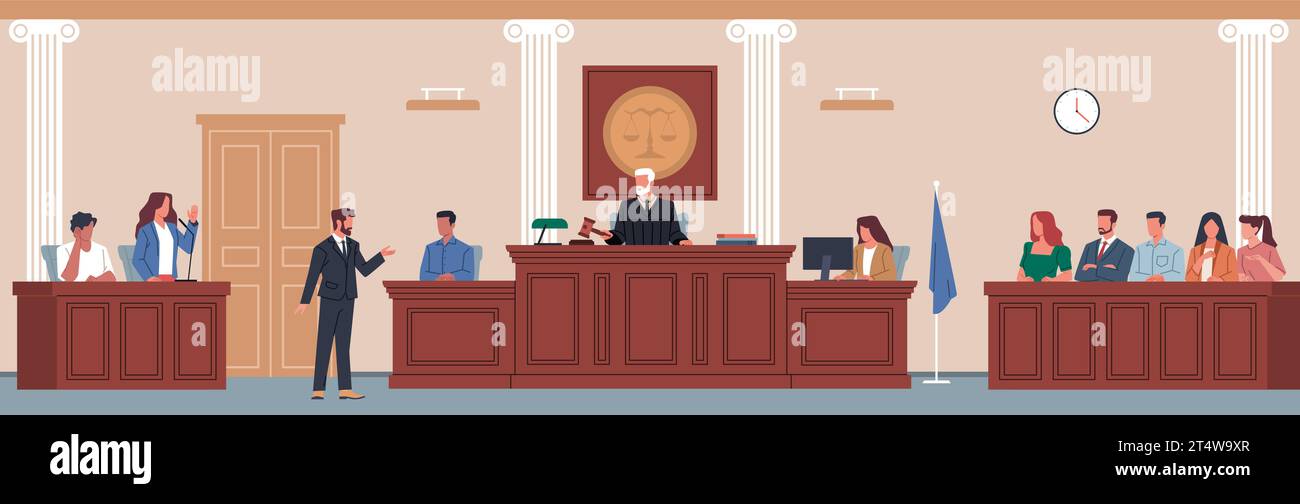Effective trial presentations help attorneys present with confidence.
Effective trial presentations help attorneys present with confidence.
Blog Article
Exactly How Trial Presentations Enhance Your Disagreement and Convince Jurors
Trial presentations function as a critical system for improving legal disagreements and convincing jurors. By incorporating aesthetic help, narrative frameworks, and emotional interaction, lawyers can produce a compelling instance that resonates on several levels. The critical use visuals not just clarifies intricate details but likewise captures jurors' interest a lot more properly than words alone. Nevertheless, the art of narration plays a just as vital function in changing valid evidence into a compelling narrative, shaping jurors' understandings - trial presentations. Recognizing these elements can substantially impact trial outcomes, increasing the question of just how each part adds to this complex dynamic.

Relevance of Aesthetic Help
Aesthetic help play an essential role in boosting the performance of trial discussions, as they can significantly increase audience engagement and retention of information. In the context of a trial, where jurors are tasked with handling facility details, visual help serve to simplify and make clear bottom lines. Graphes, charts, and pictures can convey data and concepts that might otherwise bewilder or puzzle jurors, enabling for a more uncomplicated understanding of the evidence offered.
In addition, aesthetic aids help in keeping juror interest throughout the process. By breaking the uniformity of spoken testimony, these tools can stress vital arguments, making them extra memorable. Efficient aesthetic aids can likewise stimulate psychological reactions, which can be essential in persuading jurors to line up with the speaker's story.

Crafting Compelling Stories
A compelling narrative is essential in trial discussions, as it serves as the backbone of reliable persuasion. It allows attorneys to weave with each other facts, evidence, and psychological elements into a meaningful tale that resonates with jurors. This narrative structure makes it possible for jurors to comprehend the intricacies of the instance while assisting them through the attorney's disagreement.
To craft a compelling story, attorneys should focus on clarity and comprehensibility. In addition, the usage of vivid summaries can develop psychological images that help jurors imagine the occasions, making the story more memorable.
Moreover, integrating crucial themes throughout the presentation reinforces the core message and aids in retention - trial presentations. The narrative should not just share info yet likewise evoke a sense of justice, highlighting the stakes entailed. Ultimately, a well-constructed story fosters a connection between the jurors and the instance, positioning the lawyer's disagreement as both reputable and compelling, consequently boosting the possibility of a positive verdict

Involving the Jury Psychologically
Efficient court interaction pivots on the lawyer's additional hints capability to connect with jurors on an emotional level. This connection can considerably influence jurors' understandings and their supreme decision-making. click for more Utilizing emotional charms allows lawyers to humanize the case, changing abstract legal ideas right into relatable experiences. By presenting real-life tales or testimonies, attorneys can evoke compassion and compassion, promoting a deeper understanding of the problems at stake.
Aesthetic help, such as photographs or videos, can better enhance psychological engagement, offering jurors with vivid depictions of the case's human components. Crafting a story that highlights the battles and accomplishments of the people involved makes certain that jurors see beyond the lawful arguments and acknowledge the human effects of their decisions.
An attorney's passionate delivery can resonate with jurors, enhancing their psychological financial investment in the situation. It's vital to balance emotional allures with accurate proof, making sure that jurors really feel forced to act while staying based in the reality.
Structuring Your Presentation

The body of the discussion must be rationally segmented right into crucial points, this hyperlink each sustained by engaging evidence. It is valuable to make use of storytelling strategies to weave truths right into a narrative that jurors can easily adhere to. Visual help, such as charts and video clips, can improve understanding and interaction, helping to highlight essential items of evidence.
Real-World Situation Studies
Examining real-world study supplies important understandings right into the art of test discussions and persuasion. The landmark situation of "O.J. Simpson v. The Individuals of California" shows just how visual help and engaging narratives can persuade court perceptions. The defense team effectively utilized an approach that combined prominent specialist statements with multimedia discussions, which astounded jurors and ultimately affected their choice.
Another significant instance is the "McDonald's Coffee Instance," where the plaintiff's attorneys used visuals photos of the injuries suffered by Stella Liebeck. trial presentations. This plain aesthetic proof played a vital role in communicating the extent of her burns, leading to a considerable jury award. Such instances demonstrate that impactful test discussions usually hinge on the efficient assimilation of visuals and storytelling to evoke emotional reactions from jurors
Moreover, the "Casey Anthony Test" highlighted the value of narrative comprehensibility and reliability. The prosecution's failing to develop a compelling timeline diminished their convincing power, highlighting the need of a well-structured presentation. Analyzing these situations reveals that successful test presentations call for tactical preparation, emotional engagement, and the capacity to resonate with jurors' worths and beliefs.
Verdict
Trial discussions substantially improve arguments and encourage jurors through the critical use of aesthetic help, compelling stories, and emotional involvement. A well-structured discussion balances psychological allures with factual evidence, ultimately reverberating with jurors' values.
Report this page